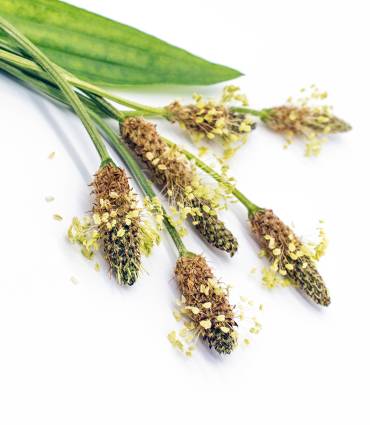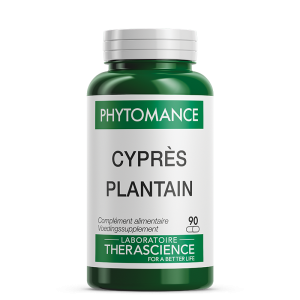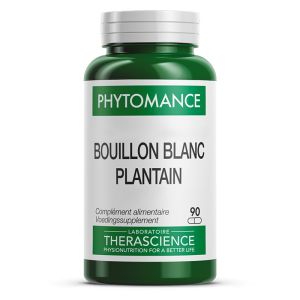
PLANTAIN

Latin names:
Plantago lanceolata L. and
Plantago major L.
Vernacular name:
Plantain lanceolate: small plantain,
five-seeded grass, hare's ear,
stinging grass
Big plantain: Common plantain
Major plantain, Big plantain,
Plantain with birds
Family :
Plantaginaceae
Origin:
Mediterranean region, North Asia,
Central Europe
Part of the plant used:
Leaves
Description
Plantain, Plantago lanceolata L. and Plantago major L., grow along the roadsides. You may have already mistaken it for a weed. In phytotherapy, its leaves have health-giving properties.
Plantain contains iridoids that give it anti-inflammatory activity. In addition, its leaves are also composed of mucilages, flavonoids, including luteolein and apigenin, but also coumarins, tannins, minerals (calcium, iron, magnesium, potassium, selenium) and vitamins (A, B, C, K).
Plantain has anti-infectious and antiviral properties against the herpes virus. Studies have shown the antibacterial properties of plantain on Staphylococcus aureus and, among others, on Bacillus cereus , Escherichia coli and Pseudomonas aeruginosa.
These two Plantago species are used for their antispasmodic and immunomodulating effects (thanks to the presence of β-glucans). Their flavonoids are also antioxidants and help fight against the oxidative stress involved in cellular ageing.
Plantain is used for its soothing properties in cases of laryngitis, bronchitis, dry and irritating coughs.
The leaves of this plant also exert an anti-allergic and anti-histaminic activity that inhibits the degranulation of histamine by mast cells.
The benefits
- Thanks to their anti-inflammatory properties, Plantago lanceolata L. and Plantago major L. are used to soothe the respiratory tract and facilitate breathing.
Our products based on Ribwort plantain
-
€28.60
-
€21.90












